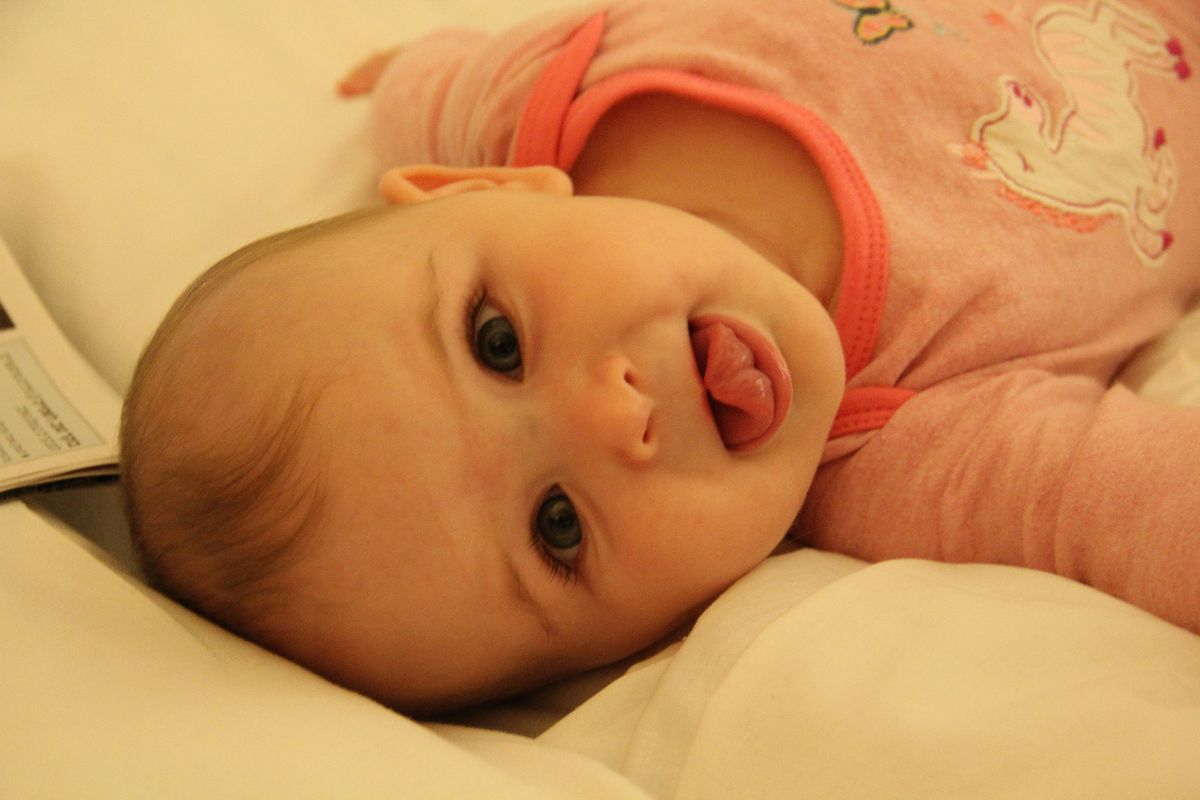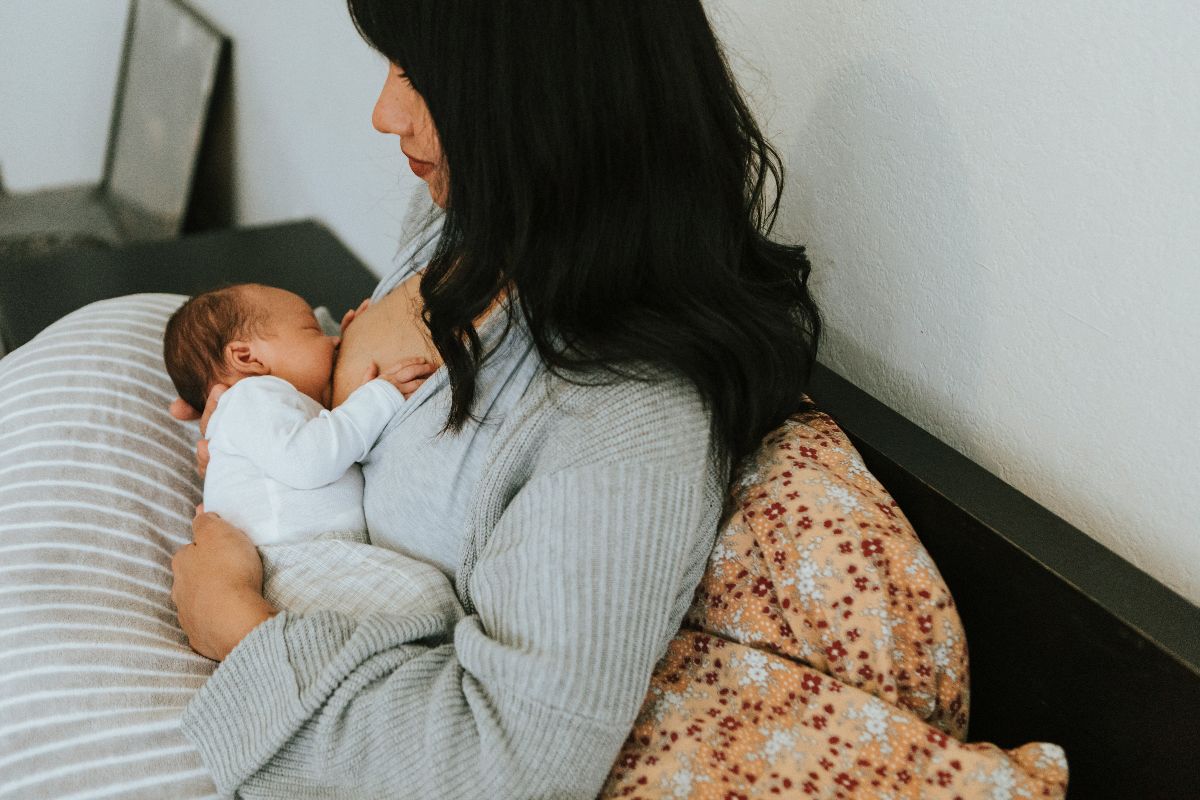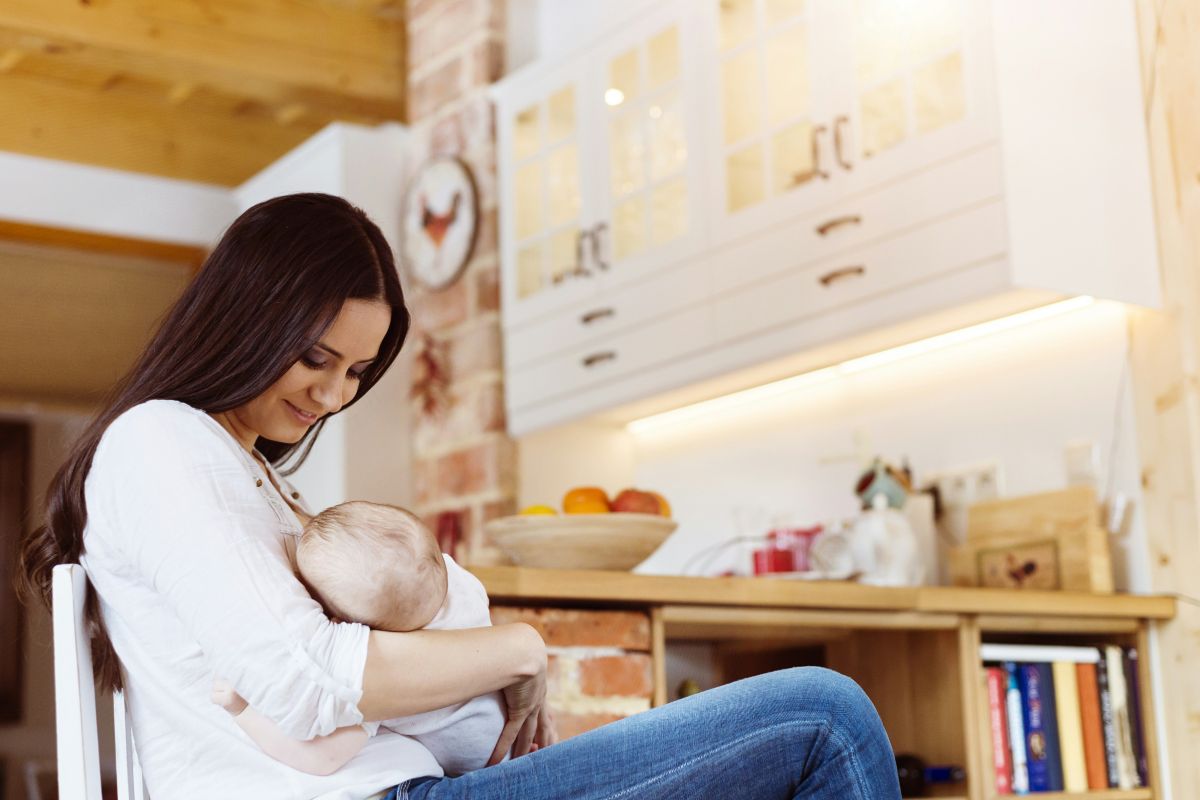New parents often have many questions and concerns, and one of the most common is about those adorable, yet sometimes perplexing, newborn hiccups. It’s a sight that can make you wonder: should I continue feeding my baby, or will it cause them discomfort? The good news is that in most cases, it is completely safe to feed a newborn with hiccups. However, while it’s not harmful, pausing to help your baby get rid of the hiccups can often make the feeding process more comfortable and effective for both of you.
Can you feed a newborn with hiccups?
It is generally safe to feed a newborn with hiccups, but the best approach is to watch your baby's comfort level. If your baby seems fine and continues to feed normally, you can proceed. The sucking and swallowing motion may even help stop the hiccups.
However, if your baby is fussing, breaking their latch, or showing other signs of discomfort, it's a good idea to pause the feeding. This prevents them from swallowing more air, which can make hiccups worse.
💡 Take a short break to burp your baby or offer a pacifier to soothe them. Once the hiccups are gone, you can resume feeding.
What causes hiccups in newborns?
Newborn hiccups are incredibly common and generally no cause for concern. They are a physiological reflex, often attributed to the immaturity of a baby's diaphragm. When this muscle, located just below the lungs, contracts involuntarily, the vocal cords snap shut, producing that characteristic "hic" sound. This is a normal part of development and rarely a sign of a serious issue. Understanding these common newborn hiccups causes can help you address them.
Swallowing air
The most frequent trigger for hiccups in newborns is swallowing air during feeding. This can happen with a poor latch at the breast or a fast flow from a bottle. The air can distend your baby’s stomach and irritate the diaphragm, leading to spasms.
💡 Taking breaks to burp your baby during a feeding can help release this trapped air.
Overfeeding
Another factor is overfeeding, where a full stomach puts pressure on the diaphragm, leading to spasms. If your bottle fed baby tends to get hiccups after feeding, offering smaller, more frequent meals might help. This prevents their stomach from getting overly full.
Gastroesophageal reflux (GERD)
While less common, hiccups can also be a symptom of gastroesophageal reflux (GERD), a condition where stomach contents move back up into the esophagus. If your baby’s hiccups are persistent, frequent, and accompanied by signs of discomfort like arching their back or fussiness, it’s a good idea to consult with a healthcare provider.
How to help a baby with hiccups
There are several gentle and safe methods you can try to help get rid of baby hiccups.
Burp your baby
The most effective strategy is often to burp your baby. Burping helps release trapped air that may be causing the diaphragm spasms. It’s a good practice to pause and burp your baby halfway through a feeding, or more frequently if they tend to get hiccups.
Adjust feeding position
Another helpful tip is to adjust your baby's feeding position. Holding your baby more upright during and after feedings can help prevent air from becoming trapped in the first place, which is a common cause of hiccups.
Feed smaller, more frequent meals (bottle fed babies only)
Feeding smaller amounts more often can also be a great strategy, especially for babies who tend to get hiccups after feeding. This prevents their stomach from getting overly full, which can put pressure on the diaphragm. If you are expressing milk with an hospital grade wearable pump, such as the Perifit Pump, you can prepare milk in advance and feed your baby in smaller, more controlled portions.
Use a pacifier
If you are using a pacifier, you probably know that it soothes the baby. The sucking motion can help relax the diaphragm and stop the spasms. These simple techniques are often all you need to know about how to stop newborn hiccups while feeding.
What NOT to do when your newborn has hiccups
While it's natural to want to help your baby, some common old wives' tales and practices should be avoided. These can be dangerous for a newborn.
- Do not try to scare them: The sudden shock can be traumatic and is ineffective.
- Do not give them water: A newborn's tiny stomach should only be filled with breast milk or formula. Giving water, especially to babies under 6 months, can lead to nutrient imbalances and is not recommended.
- Do not pull their tongue or pinch their nose: These actions are painful and can cause distress or injury.
- Do not force them to continue feeding if they are distressed: If your baby is fussy or showing signs of discomfort, stop the feeding and try to soothe them first.
Do bottle-fed babies get more hiccups than breastfed babies?
While both breastfed and bottle-fed babies get hiccups, bottle-fed babies might be slightly more prone to them, especially if the bottle's nipple has a fast flow. A fast-flowing bottle can cause a baby to gulp milk and swallow more air. A poor latch at the breast can also lead to air swallowing. The key is to ensure that whether you are breastfeeding or bottle-feeding, your baby has a good latch and you are taking breaks to burp them.
In short, seeing your newborn get hiccups is a completely normal part of infancy, and it is usually safe to continue feeding. However, a little pause can make a big difference. By paying attention to your baby's cues, using gentle methods like burping and adjusting their feeding position, you can help them relieve the hiccups and have a more comfortable feeding experience. These simple adjustments can make dealing with newborn hiccups during feeding much easier, allowing you to focus on the wonderful bonding experience that breastfeeding provides.
Sources:





